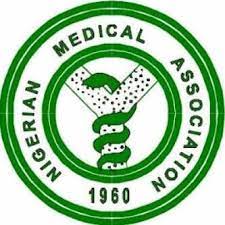The First Vice-President of the Nigerian Medical Association (NMA), Dr. Benjamin Olowojebutu, has raised alarm over the tough conditions doctors face in Nigeria.
He warned that the country’s health system could soon collapse if urgent reforms are not carried out.
In a statement, Olowojebutu said Nigerian doctors, though celebrated as lifesavers, are overworked, underpaid, and physically and emotionally drained while keeping a failing system afloat.
He noted that Nigeria has over 220 million people but only about 24,000 licensed doctors, according to the World Health Organization. This means one doctor takes care of about 9,000 people, instead of the recommended 600.
“This means Nigerian doctors work six to ten times harder than their counterparts worldwide,” he said.
He explained that doctors in public hospitals often work between 12 to 16 hours daily, handling clinics, surgeries, emergencies, and teaching. On paper, they are on call for 24 hours, but in reality, the call never ends.
He described how many doctors are woken up at 2 a.m. for emergency surgeries after working all day, only to return to clinics by 8 a.m. Such routines, he said, are now the norm in the health sector.
Olowojebutu added that doctors hardly get sleep, family life is suffering, and many are battling burnout, depression, and even substance abuse, though these problems are rarely addressed.
He also condemned the poor pay structure. A house officer earns between ₦160,000 and ₦200,000 monthly, a resident doctor ₦250,000–₦400,000, and a consultant about ₦700,000–₦800,000.
In contrast, doctors in the UK, Canada, or the US earn between \$3,000 and \$6,000 monthly at entry level. “The difference is clear,” he said.
He revealed that many doctors are also owed three to six months’ salaries, forcing them to rely on loans and side jobs. He described this as a cruel irony where “those who save lives cannot afford decent lives themselves.”
According to him, these harsh conditions are driving thousands of Nigerian doctors abroad. Over 15,000 are already practicing in the UK, with thousands more in Canada, the US, Saudi Arabia, and South Africa.
Figures from the UK’s medical council show that more than 1,800 Nigerian doctors registered to work there in 2023 alone. Olowojebutu described this as a huge loss for Nigeria, which spends millions to train doctors only for other nations to benefit.
“The cycle is dangerous. The more doctors leave, the fewer remain to serve millions here. That worsens the workload and pushes even more doctors out. It’s a vicious loop that could collapse the system,” he said.
He shared painful stories: a young doctor who collapsed from exhaustion during ward rounds but returned to work hours later, and another resident who borrowed money for rent because his salary was delayed.
“One of our colleagues once said, ‘We treat governors who travel abroad for headaches, yet we can’t afford paracetamol for our own children. We save lives, but nobody saves ours.’ That is the sad truth,” he added.
Olowojebutu said contrary to public belief, most doctors are not rich. Many appear curt in clinics not out of arrogance but because they are exhausted, sometimes working 36 hours straight with little rest and limited tools.
He linked the problems to chronic underfunding. In 2024, the Federal Government allocated only 5% of its budget to health, far below the 15% target set in the Abuja Declaration of 2001.
This poor funding, he said, leaves hospitals short of drugs, equipment, and infrastructure. Patients are often forced to buy basic items like gloves and syringes, while doctors work with outdated machines.
He warned that the result of overworked and underpaid doctors is poor healthcare for Nigerians — longer wait times, more deaths during childbirth, and low life expectancy.
The NMA vice-president urged government to increase health funding to at least 15% of the budget, pay doctors on time, and offer competitive salaries. He also called for better health insurance, more medical schools, and improved hospital facilities.
He recommended more investments in equipment, housing, training, and research to encourage doctors to stay in Nigeria.
“Doctors carry the nation’s health, yet their own health is ignored. To be a doctor in Nigeria is to be honored but impoverished, respected but neglected, overworked yet underpaid. Saving the Nigerian doctor is saving Nigeria itself,” he concluded.


